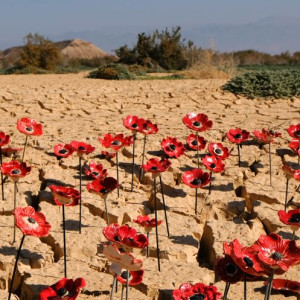Blog
October 8, 2019
The origins of the ‘scapegoat’
Did you know the history of the word ‘scapegoat’? It was first coined in the 16th century to describe the ritual animals that the Jewish community placed their sins onto in preparation for Yom Kippur?
Today we use the word ‘scapegoat’ to describe people who symbolically take on the sins of others. So let’s look at its origins.
The word was coined by a Protestant scholar, William Tyndale, in 1530, when he undertook the task of the first translation of the entire Hebrew Bible into English. He found he needed to introduce some new words into the English language in order to make sense of the Hebrew, as he understood it. And where the Torah describes Yom Kippur, he met with a problem.
A key part of Yom Kippur, as described in the Torah, is the ritual slaughter of two goats; one for the Lord, and the other is designated “for Azazel”. Jewish tradition takes “Azazel” as the name of a rocky headland off which one goat, having the sins of the community symbolically placed upon it, would be thrown. The other goat, the one for the Lord, would be slaughtered as part of the general Yom Kippur rituals. This slaughter would bring atonement to the community.

Tyndale however, who practiced Christianity, translated “Azazel” differently. Christian tradition similarly acknowledged that one goat was to be slaughtered for atonement of the community. But the second goat, bearing the community’s sins, was understood to have simply gone free – to have escaped. Tyndale named this goat the “escapegoat”, which evolved later to be used as ‘scapegoat’.
Just like the goat for Azazel, Jewish people throughout the ages have indeed encountered the phenomenon of scapegoating on many occasions.
Today, the rituals of Yom Kippur have changed hugely since it was first described in the Torah, but the habit of blaming others for things that we ourselves have done has not changed so much since Tyndale first described it.
We wish you a meaningful day of self-reflection, and a year of health and prosperity – a year in which we take responsibility for our own actions, and find peace with our neighbours and our friends.
Author: Dr Simon Holloway, Education Officer






What’s On Newsletter
Keep up to date on all Museum events and exhibitions.